BRANDED CONTENT
Powering global growth: How S'pore firms can gain a foothold abroad
Move out of comfort zones to seek new sources of growth, says Enterprise Singapore’s deputy chief executive Tan Soon Kim
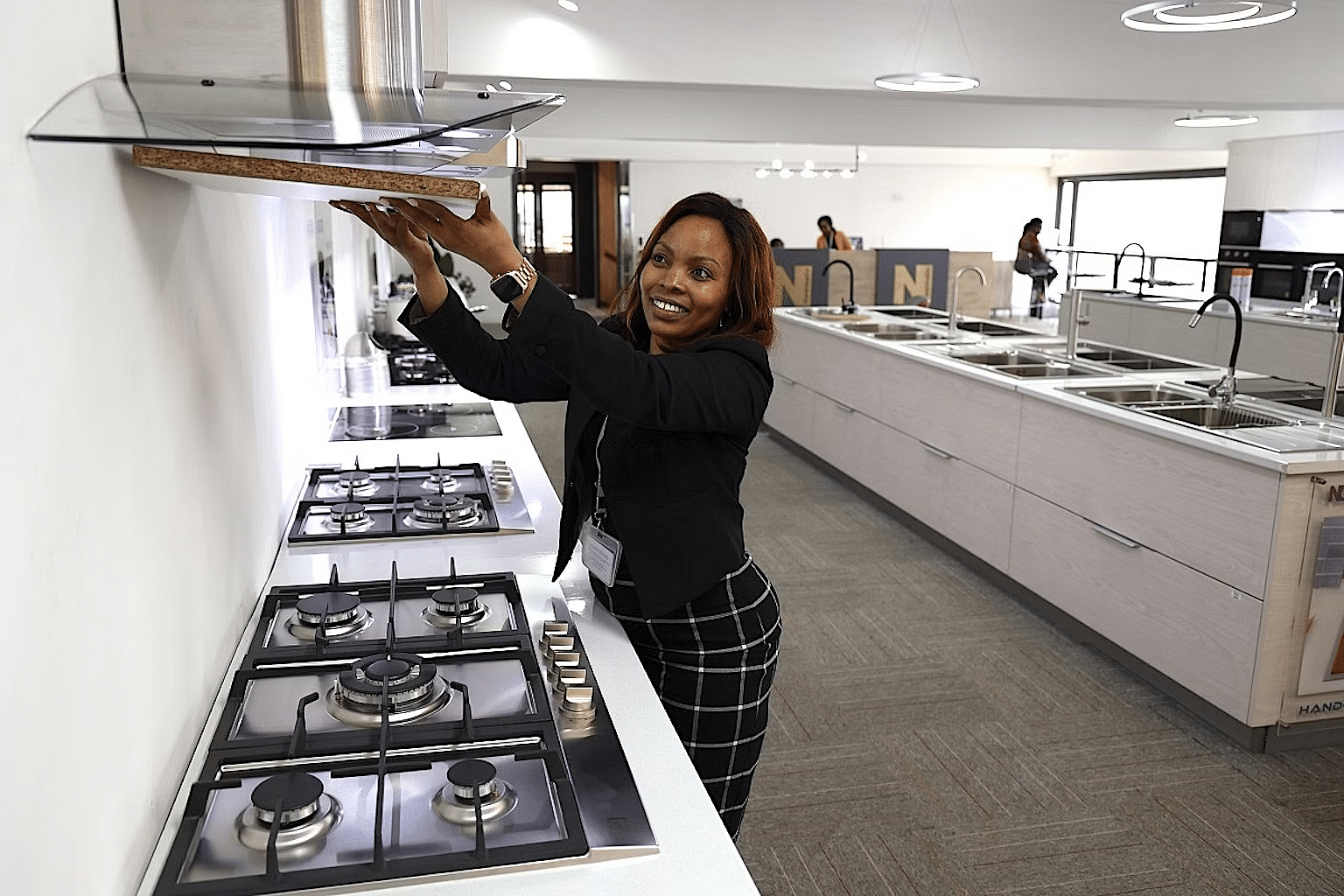
Kitchen appliance maker Newmatic from Singapore first ventured into Kenya in 2015 in Nairobi (above), and has since expanded to Uganda and Tanzania.
PHOTO: SPH MEDIA
Follow topic:
Overseas expansion comes with its challenges. But there are Singapore companies that have taken the first step out of the country, going against the grain and making things work to their advantage.
Rightfully so because in the ever-evolving world of business, internationalisation is not an option, but a necessity for a company to thrive, says Enterprise Singapore’s (EnterpriseSG) deputy chief executive Tan Soon Kim.
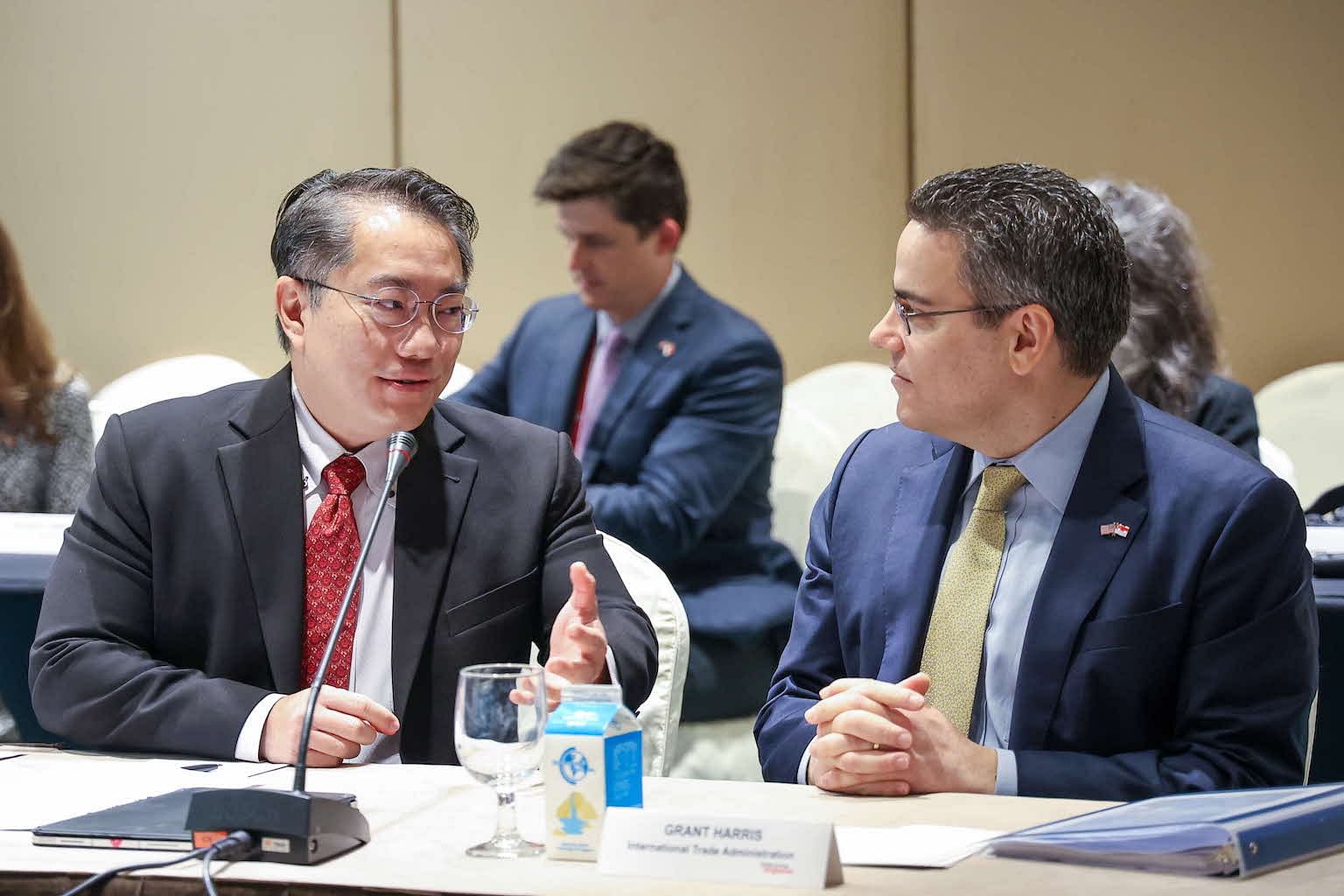
As Singapore firms navigate an increasingly complex world, internationalisation will be the differentiator for growth as companies are enabled to generate more sources of growth, strengthen supply chains and fortify resilience.
The 50-year-old, who heads global operations at EnterpriseSG, says: “We want firms to move out of their comfort zone and go to places where they can either gain first-mover advantages or secure a niche and make their mark.”
Take companies like kitchen appliances supplier Newmatic and energy infrastructure services company Rotary Engineering. Newmatic has established itself in Kenya with seven showrooms. Rotary, on the other hand, has found success as a builder of storage tanks for the oil and gas sector in the Middle East.
The mission to internationalise is a personal one for Mr Tan, who started out as a trade policy officer with the then-International Enterprise (IE) Singapore and was later posted to Washington DC in 2001 to support efforts in the conclusion of the United States-Singapore Free Trade Agreement.
The posting to the US, which coincided with the Sept 11 attack, was a defining experience which reinforced the importance of a small country like Singapore not taking things for granted and ensuring Singapore’s relevance to the world.
“Things don’t happen by chance. The same applies to my job. It’s about ensuring our economic security. Our companies need to internationalise to survive well,” says Mr Tan.
Diversifying across the world
A key strategy to achieving companies’ survival today is helping Singapore firms seek out opportunities worldwide, from the usual ports of call to those further afield.
Last year, the agency supported about 2,000 firms on their journey into new markets. While the top five destinations were familiar ones – China, Vietnam, Malaysia, Indonesia and the US – Mr Tan shares that non-traditional markets such as Kazakhstan and Kenya hold opportunities too. In fact, Newmatic is but one of a growing number of Singapore companies in Kenya.
“Our firms can indeed survive and thrive in markets outside of a seven-hour flight radius from Singapore,” Mr Tan says.
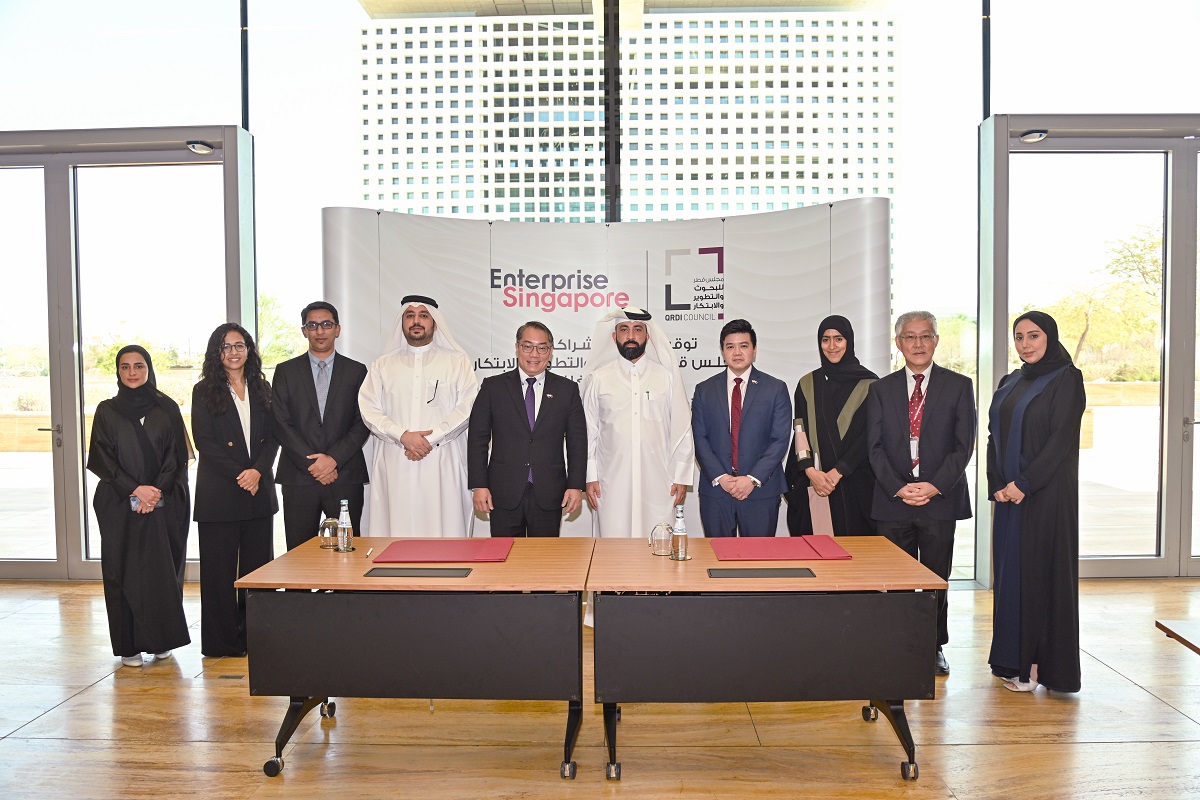
This comes as EnterpriseSG is spotlighting untapped markets to encourage firms to diversify their sources of revenue and increase resilience.
While the world’s economic centre of gravity is shifting towards Asia, with the rise of China and India, and Southeast Asia’s rapidly growing consumer base making the region more attractive to businesses, emerging economies, such as Africa and Latin America, have become forces to be reckoned with due to their large populations and infrastructure and developmental needs.
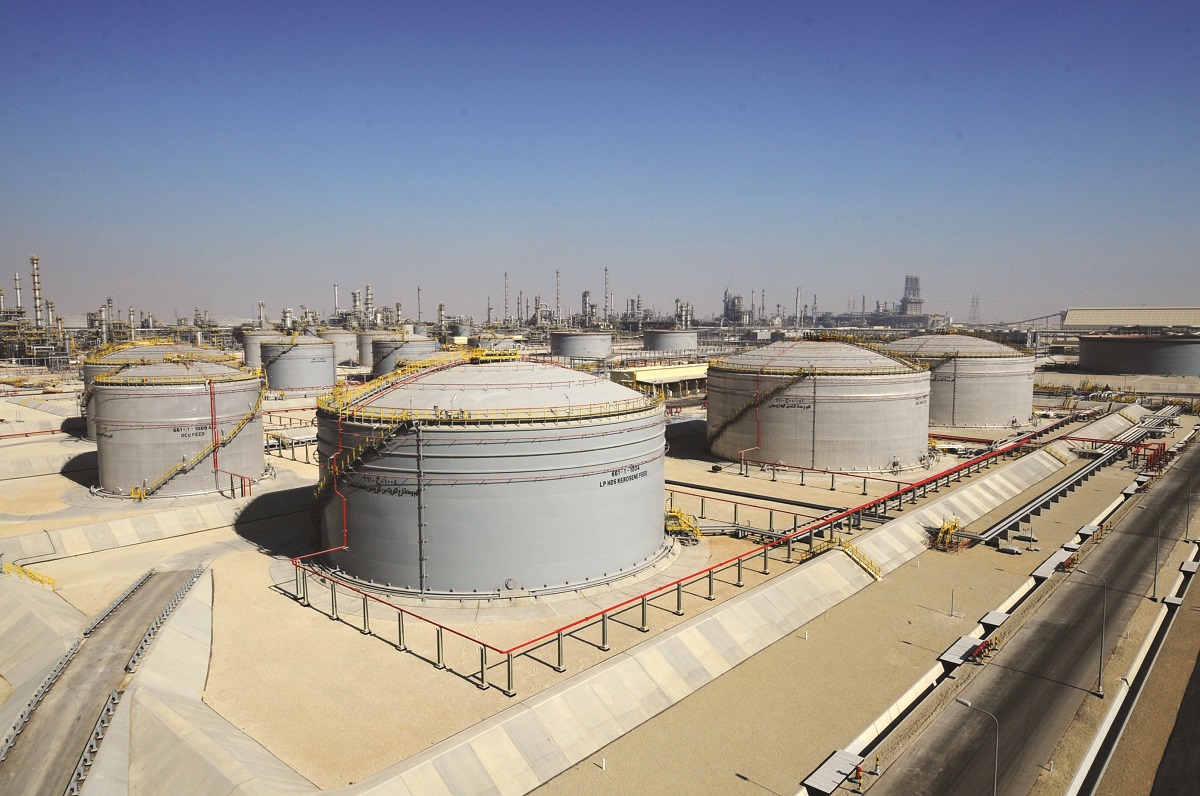
The Middle East is also becoming one to watch as markets such as the United Arab Emirates Dubai and Abu Dhabi diversify their economies from oil and gas to other sectors.
“In the past few years, we have also seen the strong emergence of Qatar and Saudi Arabia as a market for our companies,” he says.
Both countries are developing their infrastructure and boosting tourism and trade to reduce reliance on oil and gas. As they modernise, large scale developments such as Neom in Saudi Arabia and Lusail in Qatar offer many possibilities for Singapore firms to do business in the urban solutions space, from design and master planning to engineering, construction and facilities management, he explains.
Even in established markets, there are pockets of opportunities that could pay dividends for Singapore firms. “Our companies can do well in niche areas, including in advanced manufacturing and sustainability,” he advises. Case in point: The US’ Inflation Reduction Act as well as CHIPS (Creating Helpful Incentives to Produce Semiconductors) and Science Act could benefit those in the renewable energy and semiconductors industries.
As companies go global, they are also exposed to new ideas and practices, adds Mr Tan. “This fuels innovation and can help them stay ahead of the competition and drive growth.”
To go further, go together
To be sure, overseas expansion has its share of challenges. “Oftentimes, our companies do not have sufficient connections in-market, and they may need help to understand the local business terrain,” Mr Tan says.
This is where the agency’s global reach can make a difference, Mr Tan shares. EnterpriseSG has 36 overseas centres that offer companies on-ground expertise and assistance in making crucial connections. He explains: “We have been in many markets for a long time and have boots on the ground, so we can identify potential projects for them and match them with reliable business partners.”
The agency’s network extends to the Global Innovation Alliance, where it works with in-market players to run Acceleration and Co-Innovation Programmes that hasten firms’ market entry and support cross-border collaborations to create new products and solutions.
It continues to deepen its insights and reach within markets. “In recent times, we have engaged at more than the federal level. We have gone down to the state, province and even city level,” Mr Tan says. In Germany, it signed an agreement with the North Rhine-Westphalia state to promote joint innovation, with plans to conclude more of such agreements with other German states.
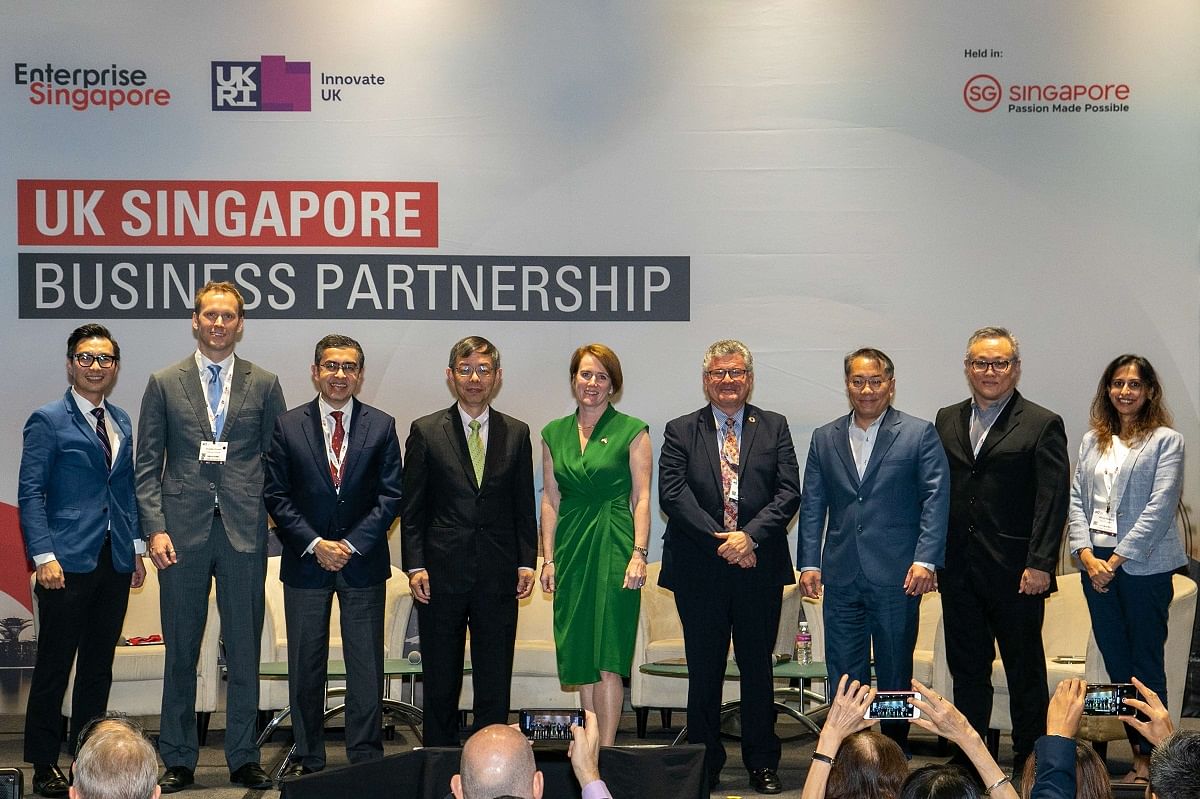
In the US, beyond New York and California, it is also highlighting opportunities in Texas, Michigan, and other states for Singapore companies.
It also inked a memorandum of understanding with the City of Los Angeles to boost Singapore firms’ cooperation in sectors ranging from logistics, transport, and advanced manufacturing to supply chain resilience and sustainability.
These partnerships, coupled with the EnterpriseSG name, can go a long way in helping companies open doors. “It can be very difficult for an individual firm to approach an overseas government agency or company and say, ‘I am from Singapore and want to offer my services’,” says Mr Tan. “When we help them do that, we lend them legitimacy and credibility.”
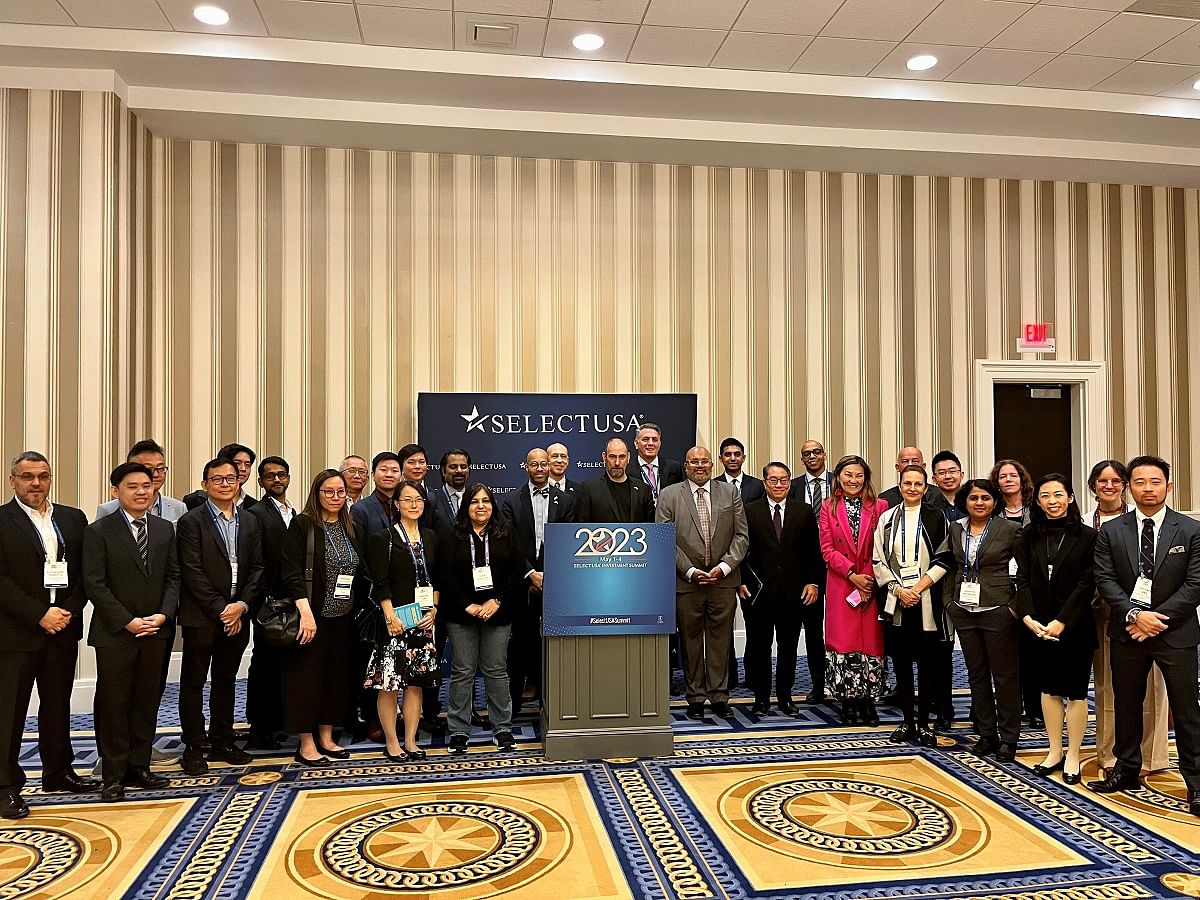
As firms navigate an increasingly complex world with challenges such as rising costs, inflation, climate change’s impact on supply chains, and the fallout of unforeseen events such as the Covid-19 pandemic, cooperation could also be the key to a successful overseas venture for them, Mr Tan shares.
It can aid Singapore companies in banding together to strengthen their value proposition, for one. “If you look at the logistics industry, for instance, it can be hard for a single firm to break into a foreign market. If we have port and warehouse operators, track and trace solution providers and more providing a one-stop, complete suite of services, that’s a much better offer.”
Singapore companies should thus work together, he says. “Separated, we are just individual drops of water. United, we can become an ocean of unstoppable potential.”
Ways to making a mark abroad
With years of experience working with local firms to help them venture overseas, Mr Tan Soon Kim, Enterprise Singapore’s deputy chief executive of global markets, shares his advice for those planning for expansion abroad

Whether it is approaching government agencies or finding suitable partners, local firms should tap on EnterpriseSG to make crucial connections, says Mr Tan. PHOTO: SPH MEDIA
Entering new markets
- Spend time in the market and build relationships with local partners.
- Do research to understand the local nuances, preferences and competition, and curate and market products accordingly.
- To reduce risk, sell products to the market and build a strong customer base before setting up physical operations.
- Always keep an open mind as other countries may not operate as in Singapore.
Deepening the hold in an existing market
- Diversify offerings to capture new customer segments.
- Partner with complementary Singapore firms to bid for larger projects.
- Tap capability building schemes such as EnterpriseSG’s Enterprise Development Grant, which supports mergers and acquisitions and product test-beds.
This is part of a series on how home-grown companies are making an impact in global markets, showcasing how they scale up with technology, innovation and sustainability as core aspects of their business, with the support of Enterprise Singapore. Find out more here.
In partnership with


